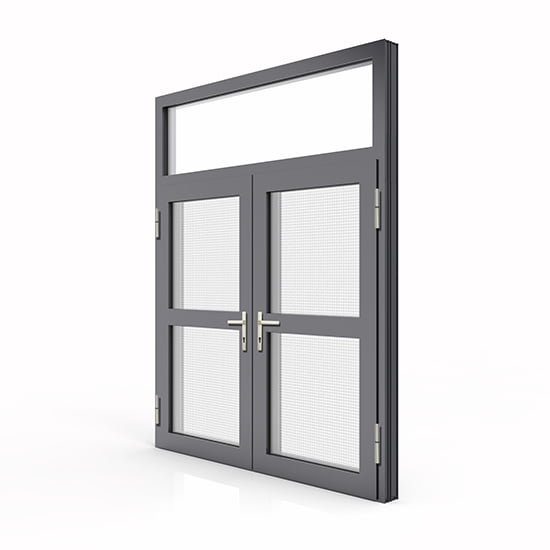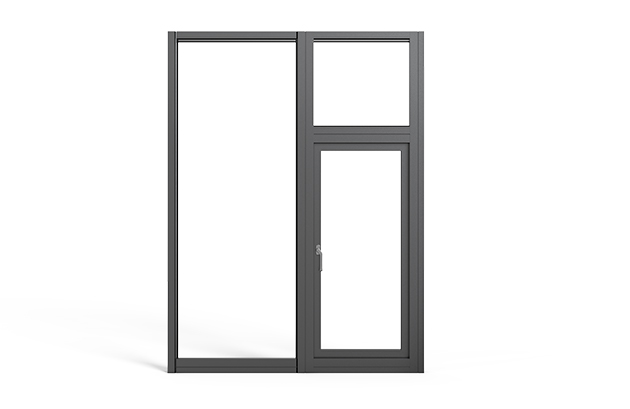Aluminum alloys are foundational to modern manufacturing, prized for their light weight, strength, and versatility. From automotive parts to architectural elements, they enable the creation of durable, efficient, and aesthetically pleasing products.
Among these, the 6000 series aluminum alloy stands out for its unique balance of properties, making it a go-to choice for everything from window frames to high-performance machinery.
In this article, HOMI will offer a comprehensive guide to the 6000 series aluminum, its properties, grades, and real-world applications—highlighting how manufacturers like HOMI leverage its advantages.
Table of Contents
ToggleTypes of Aluminum Alloy: An Overview
Aluminum alloys are generally classified into two main types: wrought alloys and casting alloys. Further, the wrought aluminum alloys are named by a four-digit numbering system, with the first digit indicating the primary alloying element. Here’s a quick look at the main series:
- 1000 Series: Nearly pure aluminum (99%+), known for high electrical and thermal conductivity.
- 2000 Series: Copper alloyed, offering high strength but lower corrosion resistance; common in aerospace.
- 3000 Series: Manganese alloyed, valued for formability and moderate strength.
- 4000 Series: Silicon alloyed, mainly used for welding and brazing.
- 5000 Series: Magnesium alloyed, providing excellent corrosion resistance, especially for marine use.
- 6000 Series: Magnesium and silicon alloyed, offering a balance of strength, formability, and corrosion resistance—ideal for structural and architectural applications.
- 7000 Series: Zinc alloyed, delivering the highest strength, often used in aerospace and sporting goods.
Key Properties of 6000 Series Aluminum
The 6000 series aluminum—primarily composed of magnesium and silicon—offers a suite of properties that make it exceptionally versatile:
- Strength and Durability: Medium-to-high strength, suitable for structural components that require both toughness and resilience.
- Lightweight Nature: Retains aluminum’s natural low density, making it ideal for applications where weight savings are critical.
- Ease of Machining: Excellent machinability and weldability, allowing for complex shapes and efficient manufacturing.
- Cost-Effectiveness: Offers a competitive balance of performance and price, especially when compared to higher-strength series like 7000.
Detailed Introduction to 6000 Series Aluminum Alloy Grades
The 6000 series encompasses several important grades, each tailored for specific uses:
Grade | Key Features & Typical Applications |
6005 | Medium strength, good corrosion resistance; used in ladders, building frames, and outdoor structures. |
6060 | Excellent welding and anodizing, used for extruded profiles in rail transit, furniture, and decorative industries. |
6061 | The most versatile; strong, corrosion-resistant, weldable, and machinable. Used in aerospace, automotive, bike frames, and precision instruments. |
6063 | Known as the “architectural alloy”; superior surface finish, ideal for window and door frames, curtain walls, and architectural profiles. |
6082 | Highest strength among 6000 series, excellent for structural applications in shipbuilding, bridges, and transportation. |
How HOMI Utilizes High-Quality 6000 Series Aluminum Alloy
HOMI, a leader in aluminum manufacturing, leverages the strengths of 6000 series alloys to produce a diverse range of architectural and industrial products. For instance,
This door system utilizes 6063-T5 aluminum, renowned for its smooth finish, corrosion resistance, and ease of fabrication, making it ideal for high-traffic entrances that demand both durability and style.
By utilizing 6063 or 6061-T4,5,6 alloys, this window system ensures optimal strength, thermal insulation, and weather resistance. With an innovative design, it is engineered for energy efficiency and long-term performance, with profiles that resist deformation and maintain airtight seals.
Beyond these, HOMI’s portfolio includes custom extrusions, curtain wall systems, and specialized architectural components, all benefiting from the machinability, strength, and finish quality of different aluminum alloys.
Conclusion
The 6000 series aluminum alloy stands out among different aluminum alloys for its unique combination of strength, workability, corrosion resistance, and cost-effectiveness.
Grades like 6061 and 6063 are especially valued for their versatility, appearing in everything from aircraft frames to modern windows and doors.
Specializing in aluminum manufacturing within the construction sector, HOMI utilizes different types of aluminum alloys to manufacture windows, doors, curtain walls, profiles, and others.
If you need robust aluminum solutions for your building projects, you are more than welcome to contact HOMI for the latest offerings and tailored solutions!




